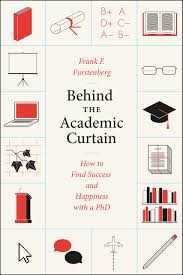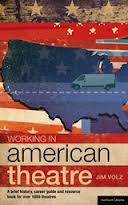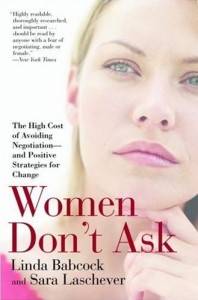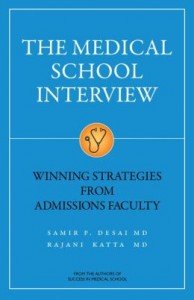Career Services will be closed from 12 noon on December 24th, 2013 until 9am on January 2, 2014.
We wish all of you a very happy holiday season. Stay safe and enjoy your break! We look forward to working with you again in the new year!
By: S. David Ross, Associate Director
My colleague Sharon Fleshman wrote a great blog on the topic of legacy a couple of years ago. As another semester ends at Penn, I would encourage everyone to take some time to really think about the lasting legacy you want to leave. Whether you are employed in an internship, work-study job or working full-time, it’s easy to become consumed in day-to-day activities without thinking about the big picture. While many people may reflect on their job duties and tasks for resume writing purposes, ask yourself what you want to be remembered for as a member of an organization. As Sharon mentioned, your legacy does not always have to be defined by a formal achievement on a grand-scale. But your legacy can be a proxy for your reputation and influence future opportunities. Ultimately, what you hope to leave as your legacy can also serve as a useful guide to keep you focused on what you want to accomplish and making an impact.
Happy holidays everyone!
The end of the semester has almost been like Christmas for the Career Services Library. Here are some of our recent additions to the library that you can come by and read now or when you return from break!
 Behind the Academic Curtain: How to Find Success and Happiness with a PhD by Frank F. Furstenberg. From the publisher: More people than ever are going to graduate school to seek a PhD these days. When they get there, they discover a bewildering environment: a rapid immersion in their discipline, a keen competition for resources, and uncertain options for their future, whether inside or outside of academia. Life with a PhD can begin to resemble an unsolvable maze. In Behind the Academic Curtain, Frank F. Furstenberg offers a clear and user-friendly map to this maze. Drawing on decades of experience in academia, he provides a comprehensive, empirically grounded, and, most important of all, practical guide to academic life.
Behind the Academic Curtain: How to Find Success and Happiness with a PhD by Frank F. Furstenberg. From the publisher: More people than ever are going to graduate school to seek a PhD these days. When they get there, they discover a bewildering environment: a rapid immersion in their discipline, a keen competition for resources, and uncertain options for their future, whether inside or outside of academia. Life with a PhD can begin to resemble an unsolvable maze. In Behind the Academic Curtain, Frank F. Furstenberg offers a clear and user-friendly map to this maze. Drawing on decades of experience in academia, he provides a comprehensive, empirically grounded, and, most important of all, practical guide to academic life.
While the greatest anxieties for PhD candidates and postgrads are often centered on getting that tenure-track dream job, each stage of an academic career poses a series of distinctive problems. Furstenberg divides these stages into five chapters that cover the entire trajectory of an academic life, including how to make use of a PhD outside of academia. From finding the right job to earning tenure, from managing teaching loads to conducting research, from working on committees to easing into retirement, he illuminates all the challenges and opportunities an academic can expect to encounter. Each chapter is designed for easy consultation, with copious signposts, helpful suggestions, and a bevy of questions that all academics should ask themselves throughout their career, whether at a major university, junior college, or a nonacademic organization. An honest and up-to-date portrayal of how this life really works, Behind the Academic Curtain is an essential companion for any scholar, at any stage of his or her career.
Dr. Furstenberg is is the Zellerbach Family Professor of Sociology Emeritus right here at the University of Pennsylvania!
 Working in American Theater by Jim Volz
Working in American Theater by Jim Volz
From the publisher: This is the indispensable career guide for anyone interested in the theatre: the complete A to Z culled from industry expert Jim Volz’s experience and interviews with many voices in the theatre community. This guide is your first port of call from how to get your foot in the door to where, when and how to advance your career. In addition to advice, inspiration and strategies for all working practitioners, not just actors, it also features extensive listings and directories for regional companies, commercial theatre, festivals, touring companies, university theatres and children’s productions.
This book updates and replaces our previous holding, The Backstage Guide to Regional Theater, which was an extremely popular title in the library.
 Women Don’t Ask by Linda Babcock & Sara Laschever
Women Don’t Ask by Linda Babcock & Sara Laschever
From the publisher: Combining fascinating research with revealing commentary from hundreds of women, this groundbreaking book explores the personal and societal reasons women seldom ask for what they need, want, and deserve at home and at work–and shows how they can develop this crucial skill.
By neglecting to negotiate her starting salary for her first job, a woman may sacrifice over half a million dollars in earnings by the end of her career. Yet, as research reveals, men are four times more likely to ask for higher pay than are women with the same qualifications. From career promotions to help with child care, studies show time and again that women don’t ask–and frequently don’t even realize that they can. Women Don’t Ask offers real-life examples of the differences between the negotiating habits of men and women, and guides women in retooling their attitudes and approaches.
Also recently added to our collection is the companion book, Ask For It, by the same authors.
 The Medical School Interview: Winning Strategies from Admissions Faculty by Samir P. Desi & Kajani Katta
The Medical School Interview: Winning Strategies from Admissions Faculty by Samir P. Desi & Kajani Katta
From the publisher: Did you know that the interview is the most important factor in admissions decisions? What can you do to achieve maximum success during the interview?
In 2011, the AAMC published a survey that evaluated the importance of 12 variables on admissions decisions. These variables included total MCAT scores, science and math GPA, and the interview. The interview was rated the most important factor, receiving a score of 4.5 (scale of 1 [not important] to 5 [extremely important]).
by Ana Schwartz
Instead of prescriptions about professional development here at the end of the year, a novel seemed to be a nice way to relax from the strenuous pace of the semester. Dave Eggers’s most recent novel, The Circle, presents themes that resonate strongly with concerns stressed by Career Services, particularly in the realm of social media. The book offers an entertaining opportunity to think in a comprehensive way about the importance of Social Media for both personal and professional development. It’s a story about technology and for that reason a lot of that coverage is on digital news venues. As a consequence, the critical conversation, especially in the first weeks after its publication, circulated more widely and increasing exponentially more swiftly than Eggers’ earlier books, each of which tackled some current affair—Hurricane Katrina, for example, or the refugee status of the Sudanese Lost Boys. In this novel, a recent college graduate, Mae Holland, gets hired at The Circle, a very large Silicon Valley tech firm whose motto might as well be “Don’t Be Evil.” The plot narrates her rise within that firm, and the consequences to her personal life. It can be read as a cautionary tale, and one of the takeaways from this work of prose fiction is that an awareness of the various modes for communication, the unique qualities each has to offer, are essential to living the good life in the twenty first century.
A Social Dystopia?
The novel is bold in its claims: One of Eggers’s less subtle polemics is a critique of the way that digital innovation, especially in social media, is blurring the distinction between public and private, between personal and professional. As Mae progresses within the firm, she’s required to take advantage of several platforms for social connectivity. She begins as a customer experience representative, with a Yelp-like ratings system to measure her performance. She can compare her metrics with those of other co-workers, but the Facebook-like platform for these interactions allows, and even encourages social interaction and collaboration within the workplace. Its also common for engineers at the firm to try out beta-versions of their designs within the Circle community, such as more sophisticated dating apps. Mae’s ascent within the firm is complete when she goes fully “transparent,” and dons a worn camera to link her every action with her social media profile to become the chief interactive ambassador for the firm. But as a consequence, she loses some of her earliest and dearest friends and puts perhaps irreconcilable distance between herself and her family.
Is The Future Already Here?
Certain recent analyses of the digital climate suggest that such a situation, although exaggerated, isn’t far from the truth. The Economist, for example, hardly a venue for alarmist predictions, recently published a cover story on the implications of Google Glass, and began with a lede that quoted Eggers’ novel. The article discussed consequences of the ubiquity of social media and used the novel’s fictional phenomenon of “going transparent”—taking on a camera to share every act of every day—to hypothesize about the complete erosion of the boundary between public and private. Although The Economist story goes on to explain that the technology currently exists to make that fiction a reality, the concept of “going transparent” holds rhetorical power in both the article and in the book because it asks readers to imagine something that is ultimately, at least for now, undesirable. Yet if most readers will agree that such a future is distressing, how might the resources of social media maintain their use value for readers without becoming too scarily powerful?
Even before this future in which fears of surveillance have become reality, the more day-to-day experiences of social media cause a little bit of ambivalence: On one hand, social media does facilitate collaboration, and working with others is more fun, and more productive than working alone. There are countless well-respected studies on the power of collaboration to produce better results than solitary thought, and still more claims on the effects of social media to foster that cooperative labor. On the other hand, the wider presence of social media leads to a diminishment of personal and intimate space. More broadly, social media allows synthesis of various, seemingly diffuse interests but its use might easily lead to overstimulation, oversaturation, and fatigue.
Where Is Here? The Campus Community
These concerns are a major factor in college. Campuses are deliberately social environments, and some of the best institutions for exploration and collaboration. The widespread use of social media helps make it easier to archive and publicize ideas, to make connections based on those ideas, as well as to express those connections in, let’s be real, fun ways. This latter point is no less important than the former ones: Who you know and who knows you is just as important as the concepts and skills acquired in college. For that reason, being publicly social, taking advantage of the powerful mnemonic features of each platform—such as the conversations function on Twitter or the timeline on Facebook—allow users to take maximum advantage of the social interactions that are integral to college life, intellectual growth, and professional development. It’s no coincidence that Silicon Valley firms call their sites “campuses,” and likewise, even Eggers’ novel admits this when it makes the college friendship between Mae and her eventual boss Amy the plot catalyst that gets Mae her envied entry-level position amid scores of other highly qualified candidates.
These uses of social media are important to consider, in part because they affect future employment prospects—social media can improve the quality of college work, and the style of professional representation. They’re also important because they affect the current quality of life at a formative age—habits of early adulthood, Ben Franklin might have observed, shape the fullness of life experience later on. These themes are also important because such technological innovations are being developed here on this campus, by members of this very community.
Penn’s been a fertile ground for such tech-driven startups as Venmo, Lore (formerly Coursekit) or even Warby Parker. The PennApps hackathon brings coders from around the world, and local resources like First Round Capital, or their recently developed Dorm Room Fund acknowledge the dynamism of this community and point to the importance of deliberate attention to the future use of apps to connect the personal and the public.
The Insights of Literature
That Penn has so many resources to create and to take advantage of digital innovation makes literature not less relevant, but more. Dave Eggers’s recent novel, despite its pessimism, is a great example of this. As a genre, novels have traditionally been concerned to represent the totality of rising middle class life, and in doing so, remind readers and digital citizens about the diversity of personal interests worth being publicly shared and perhaps also the ones that ought to be kept private. Furthermore, novels can help work out the style and methods by which to publicize these interests. A novel like The Circle very explicitly identifies certain features of life that might be best to avoid publicizing—the health of family members, for example, or beginnings of a romantic relationship. It identifies certain features of life that take better to certain platforms over others. Perhaps inadvertently, too, the novel’s vivid, if sometimes farcical description of the many platforms for sharing on social media, suggest the importance of considering which venues are more skillful for sharing different sorts of ideas or events.
Putting Insights Into Practice
This has real applicability: It’s easier, for example, to use twitter to publicize or advertise an event or chronicle real-time responses to events than it is to have a conversation about that event. Conversation is by no means impossible, though, and twitter’s conventional demands—concision primary among them—offer a challenge to be clearer, more direct. Still further, the delayed immediacy of Twitter encourages a different sort of patience for response, somewhere between the directness of speech and the delay of print. As a result of more detailed familiarity with the unique qualities of different platforms, it’s possible to leverage more advanced, subtle skills for effective, and even compelling communication, skills such as pacing and tone. This is just one example of how deliberate use of social media, can cultivate a more robust, skilled mode of sharing personal and professional interests. Maybe it’s perverse, at the end of a long, busy semester, in a season of relaxation, to try to instrumentalize even recreational reading. There are certainly other ways to read fiction, ones perhaps less suited to analysis on a digital platform, ways of reading even more pleasurable than this one.
Dr. Joseph Barber
In thinking about what careers you might explore when you graduate with your PhD, or once you finish your postdoc, it would certainly be helpful to know where others have gone before you. Those people who have made it through your programs before share a lot in common with you.
The career options they have pursued might be those that you would also find interesting. The skills they use in their careers might be similar to the skills you current use in your research. Traveling down well-beaten paths is not the only way to reach a successful career destination, but it can certainly be an effective one. This is especially true when people in these different career fields are willing to share their experiences and insights with you to help you come to a more informed decision about your career path, or to prepare yourself for a specific path more effectively.
Let’s review the different levels at which you can seek information about career options, and find contacts through networking to help you find some of the answers that you are seeking.
The Penn connection
Penn has a rich history of engaged alumni, and current students can continue to make marvelous connections with a wide range of professionals in different careers by making use of the Penn alumni searchable database – QuakerNet. This is not a resource for asking people whether they have a job for you, but can be a great place to make connections to help you learn more about what it is like to work in a certain role, in a particular company, within a broad industry, and so on. Simply by asking people what they do, and what skills they use to do it, you can absorb some of the language you might be able to use to describe your past experiences in terms that your future employer might better understand – to use their language to make your skills relevant. If you are looking for a New Year’s resolution, then make sure that you put “set-up more informational interviews” at the very top of your list.
By now, you have hopefully been exposed to the potential that LinkedIn can offer you in terms of making connections with people like you doing interesting and wonderful things in many career fields. I know some people are a little resistant to this resource for many different reasons, but if you just see it as a powerful career exploration tool, then it can help you overcome some of these concerns.
Continue reading “Working with the end (of the year) in mind”